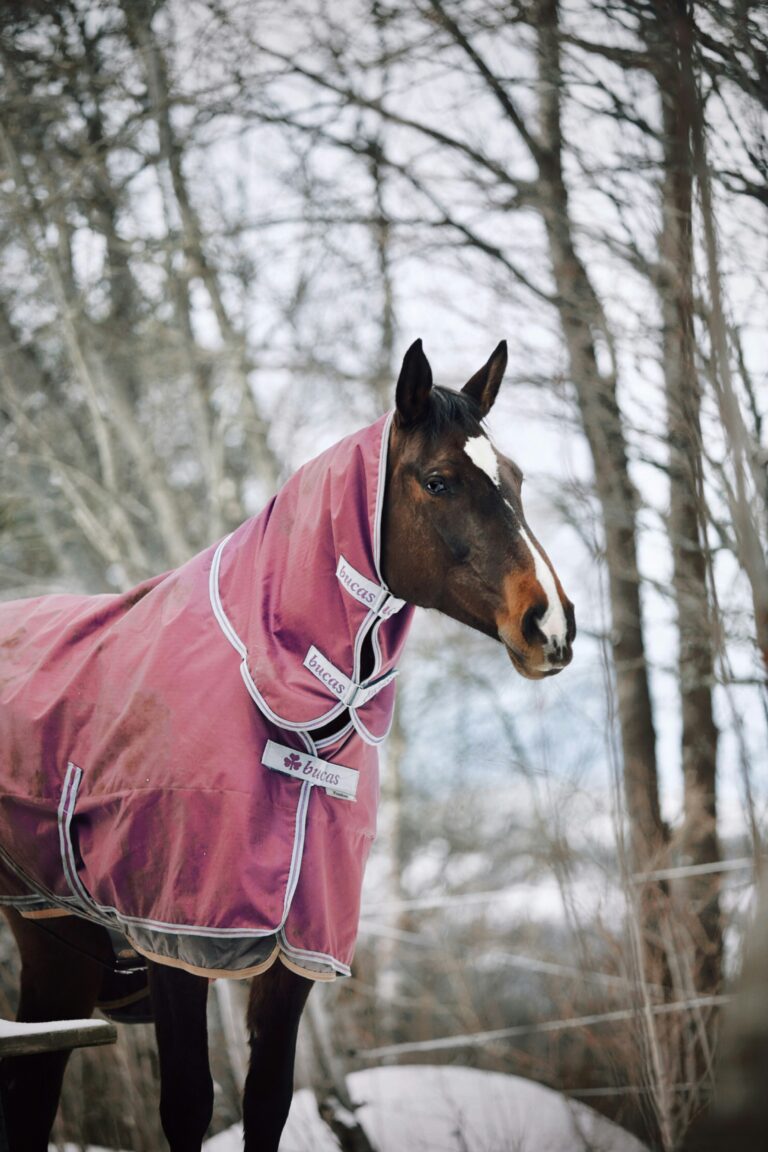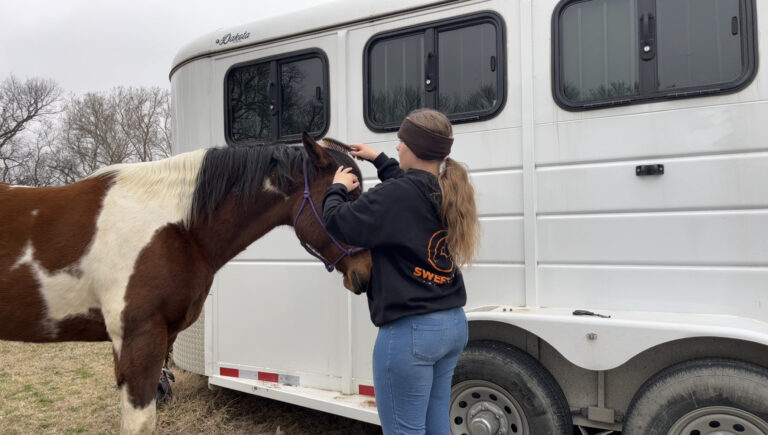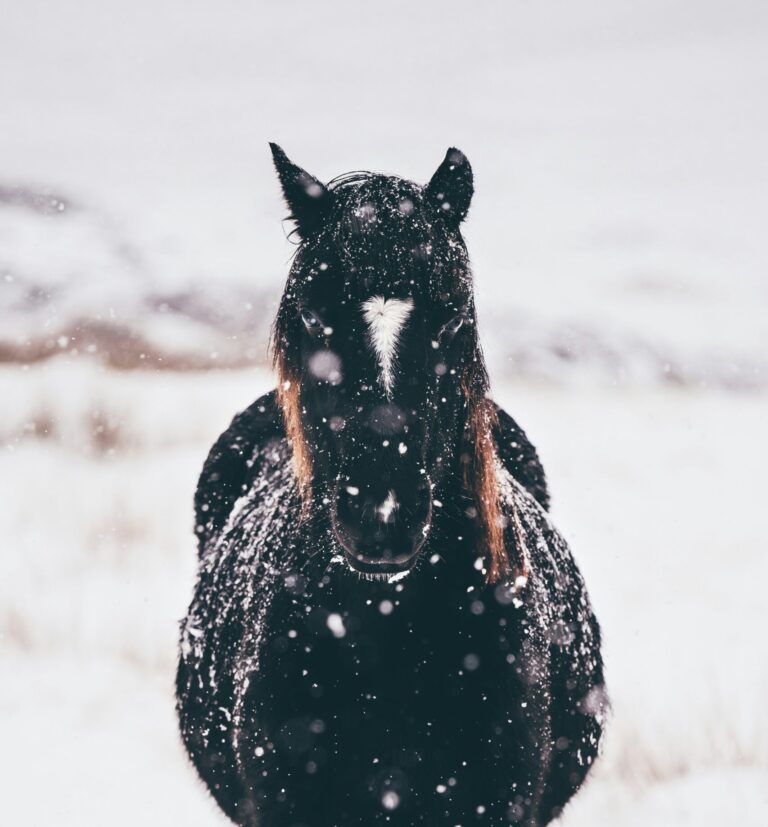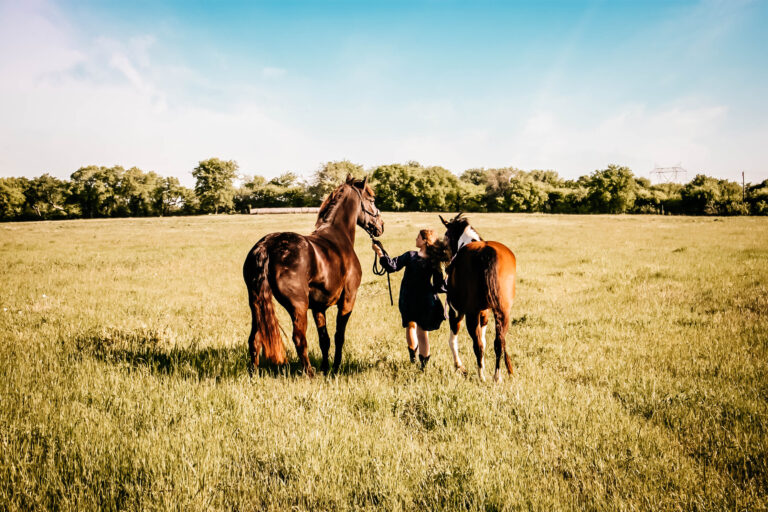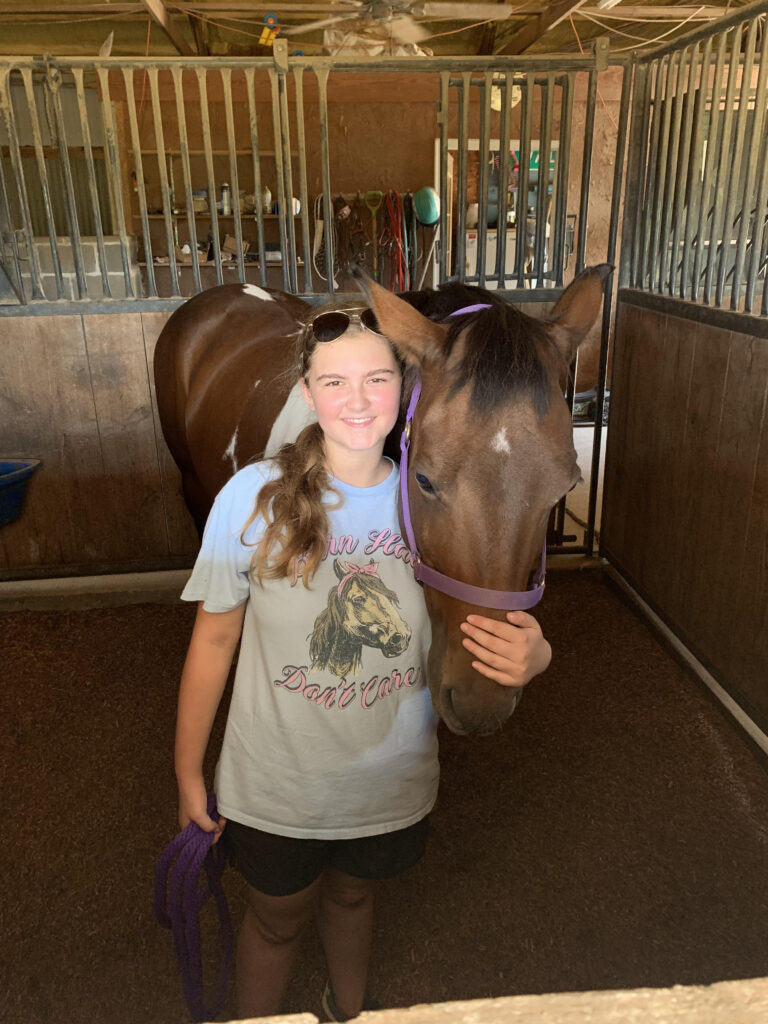Fly Control For Horses
The warmer weather brings lots of fun, exciting adventures for you and your horse, but it also brings flies. Fly control for horses will reduce health risks and make horses more comfortable.
Flies often bother horses and can poss health risks. Its important to keep flies under control so your horse can be safer at the barn.
I will share why flies like to hang out in your barn and things you can do to make it less appealing to them.
With the right strategies and a proactive approach, you can effectively manage fly populations and provide your horses with a more comfortable and peaceful environment.
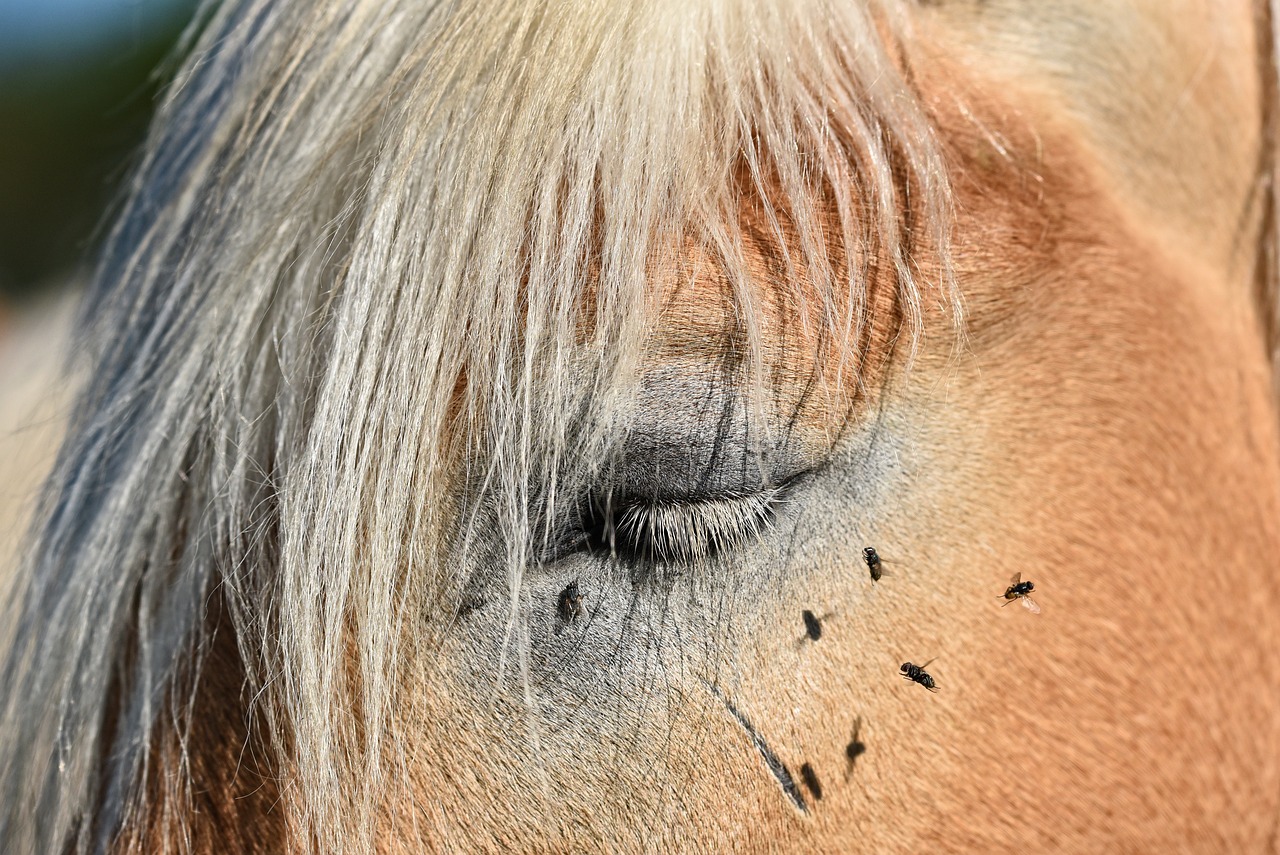
I will tell you my favorite products to protect your horse from flies along with modifications you can make to your barn.
With these helpful tips, you can keep your horse safe and comfortable while in their stable or field.
Understanding Fly Behavior
To manage flies, its important to understand their behavior and what attracts them.
Flies love warm and moist environments like manure and feed. They lay their eggs in these areas and can greatly increase their population if not monitored.
Flies often target a horse’s lower legs which causes painful and irritated bites. This can make a horse more irritable and much more restless.
Horses that are bothered by flies can develop health conditions such as swamp fever, hives, and hair loss. These horses can also become more dangerous to ride if they try to kick out at flies.
Understanding these behaviors means you can eliminate possible breeding grounds and make environments inhospitable for flies to live in.
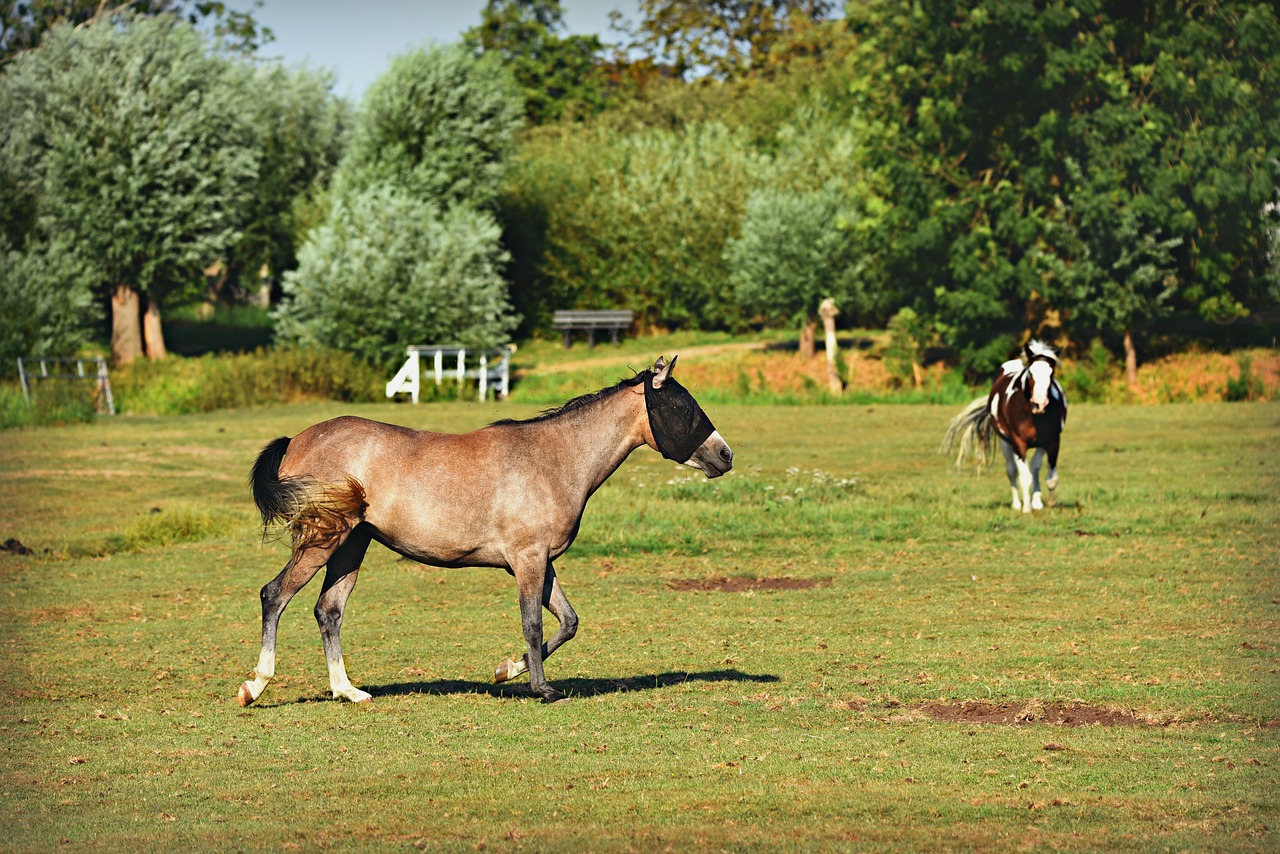
Environmental Modifications
One of the best ways to reduce fly populations is to reduce potential breeding sites and make the environment less appealing for flies to live in.
Start by maintaining a clean and dry environment because flies like moist places to lay eggs.
Regularly clean manure out of stalls and make sure your manure pile is away from horses. Consider composting or thinly spreading manure to allow it to dry quicker.
Areas prone to standing water are big areas for flies to breed in. Repair any leaks in water troughs, fix leaky faucets, and ensure proper drainage around the barn and paddocks to eliminate stagnant water sources. Also, make sure water troughs in fields and stables are properly cleaned and filled with fresh water at all times.
Keep feed storage areas clean and free of spilled feed, and remove any rotting vegetation from around the barn. Keeping your feed room clean can also reduce the risk of ant or rat infestations.
Additionally, creating a proper ventilation system will reduce moisture and fly activity.
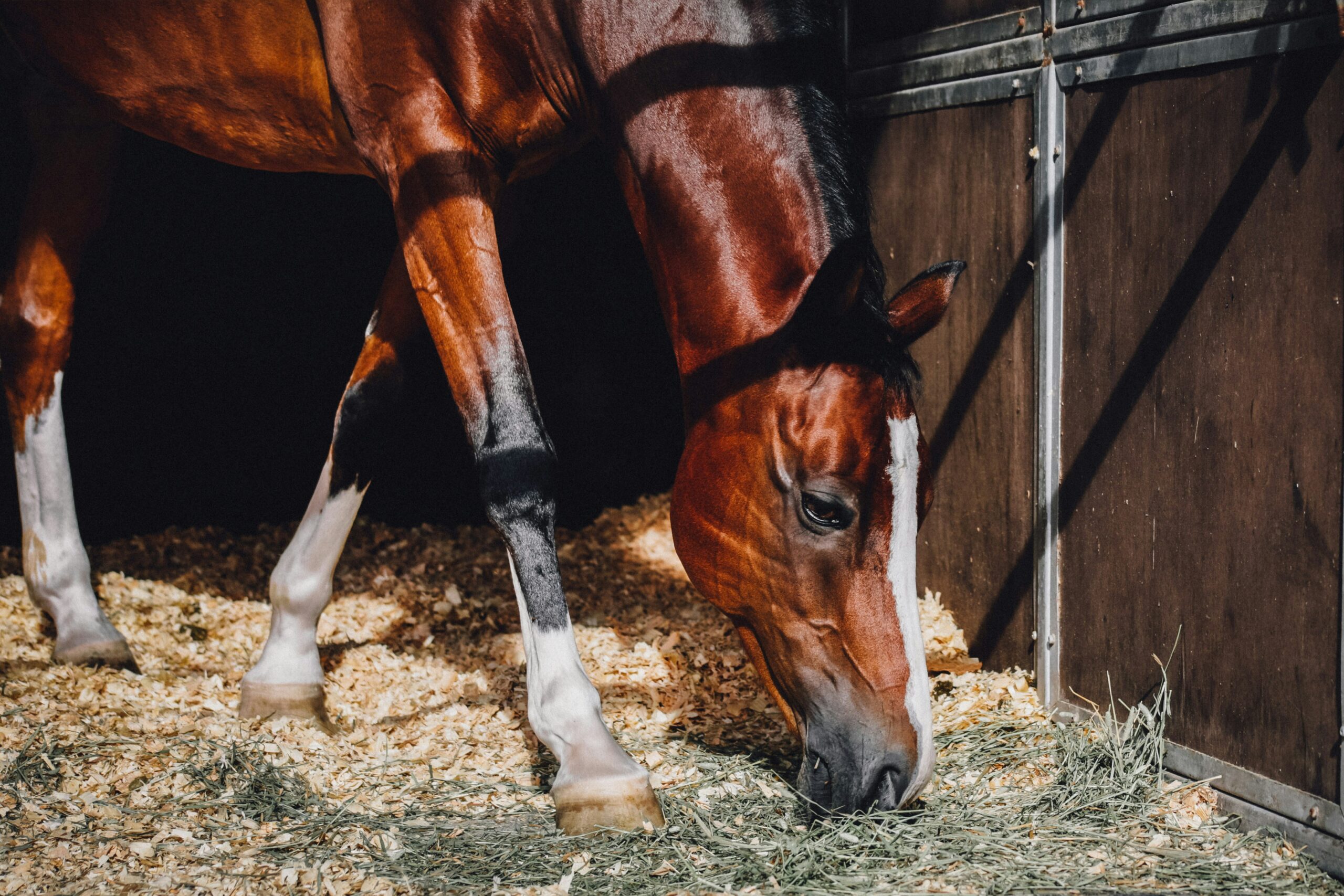
Fly Control Products
There are many products that you can buy to put around your barn and even on your horse to reduce the amount of flies in your barn.
Both of my horses wear fly masks during the day when flies are bad. Fly masks shield a horse’s face, eyes, and sometimes ears from flies.
They have a mesh covering for the face and some even have ear coverings or a nose flap to protect the muzzle. Fly masks not only protect horses from flies but can also provide horses some protection from the sun.
You can also buy your horse a fly sheet to protect their body or fly boots for their legs. Some fly sheets or masks even have special patterns meant to deter flies from landing on your horse.
Fly sprays can also be sprayed on your horse to repel and kill flies. My favorite fly spray is Ultra Shield which also acts as a sunscreen for your horse.
Around your barn, you can place fly traps or baits to catch and kill flies. Some of the many fly traps available include sticky, electric, and baited traps.
Using fly control products will make your horse much more comfortable while also lessening flies in your barn.
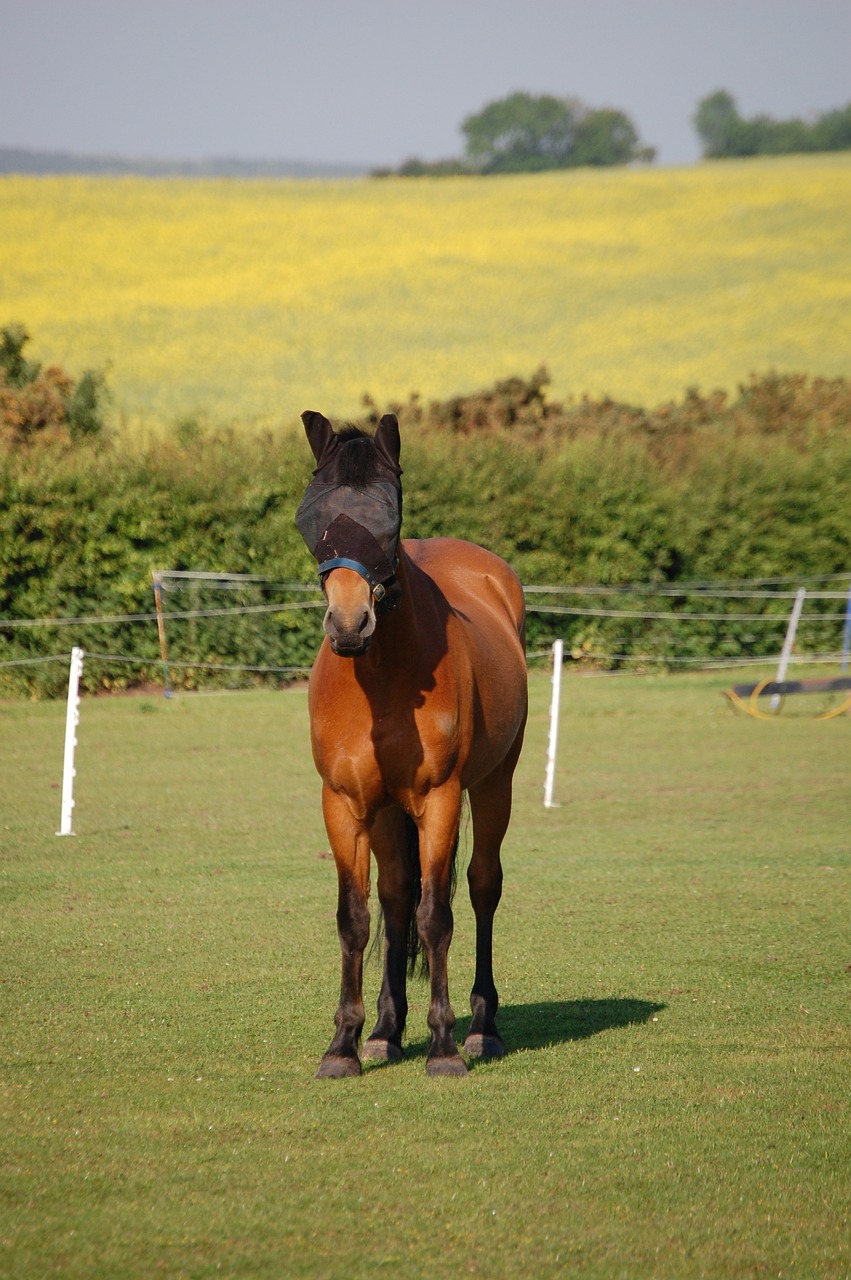
Natural Remedies and Repellents
There are many natural ways you can deter flies instead of using chemicals. This can be safer for horses than using chemicals that could be harmful if they were to accidentally ingest them.
Essential oils such as citronella, lavender, eucalyptus, and peppermint are effective at getting rid of flies. These smells are known to mask smells flies like and repel them because of their fragrance.
A popular way to repel flies is to make homemade vinegar fly traps. To make a vinegar fly trap fill a container with apple cider vinegar and add a few drops of dish soap to break the surface tension. Flies are attracted to the vinegar and will drown upon contact.
Certain plants such as lavender, basil, mint, rosemary, and marigolds create smells that flies don’t like. These plants smell great and are a beautiful addition to the outside of a barn.
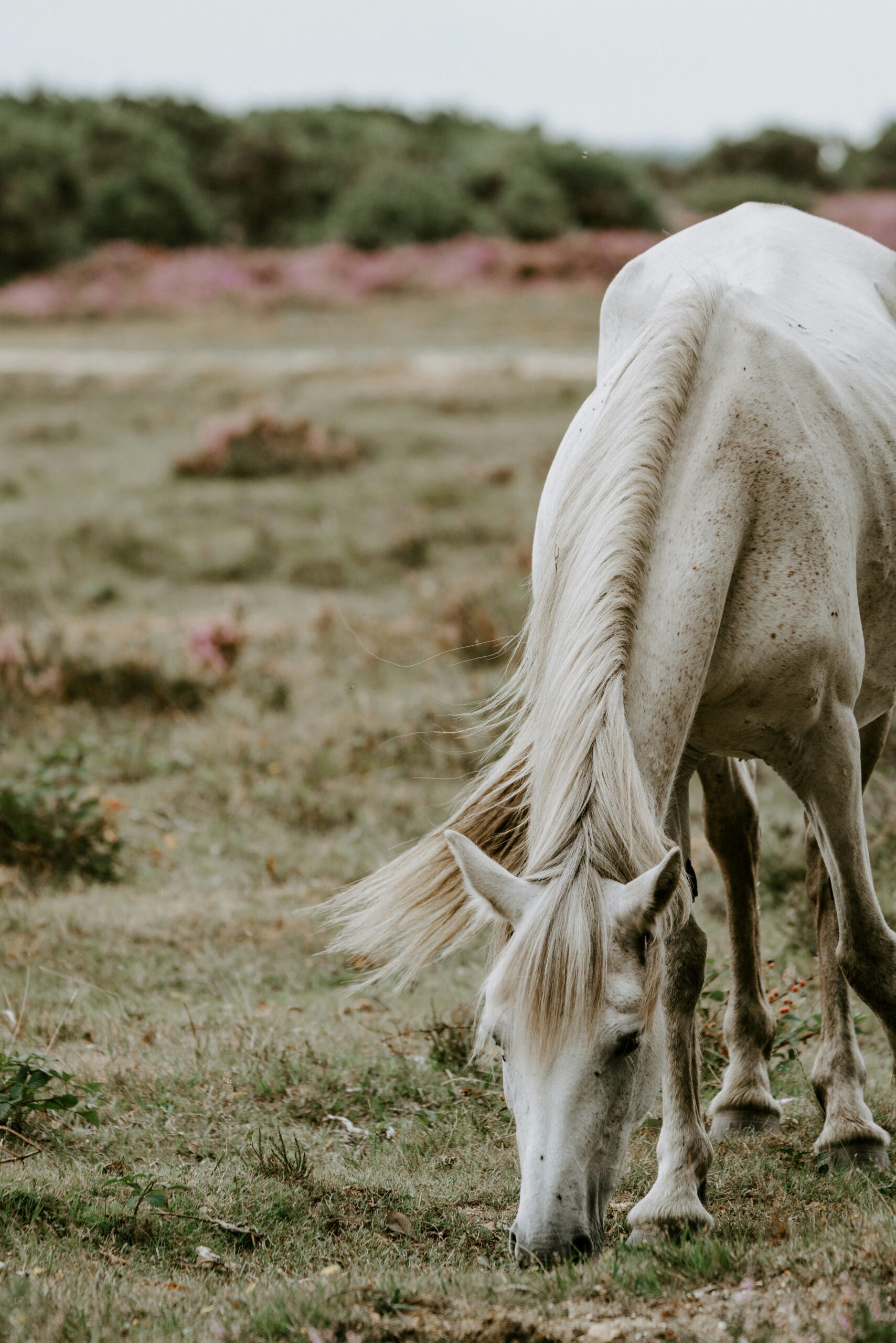
Barn and Stable Management
There are lots of things that you can do around your barn and stables to keep flies at bay. Flies love barns because of the moisture in manure and water troughs. Lowering the moisture level creates an inhospitable environment for flies to live in.
The biggest thing flies like is manure. Flies love laying eggs in horse manure and are attracted to manure piles. Create a schedule to muck out stalls to reduce the amount of manure in your barn.
Manure will make bedding in horse stalls very moist and soiled so make sure to regularly change your horse’s bedding. Wet bedding creates the perfect breeding conditions for flies.
Make sure water troughs are clean and free from algae. Flies love the stagnant water conditions especially ones that are dirty. By refilling and having clean fresh water buckets you can discourage fly activity.
You can also use fans to circulate the air and reduce humidity and stagnant air pockets. Keep windows open and use screens to allow for natural air flow through your barn.
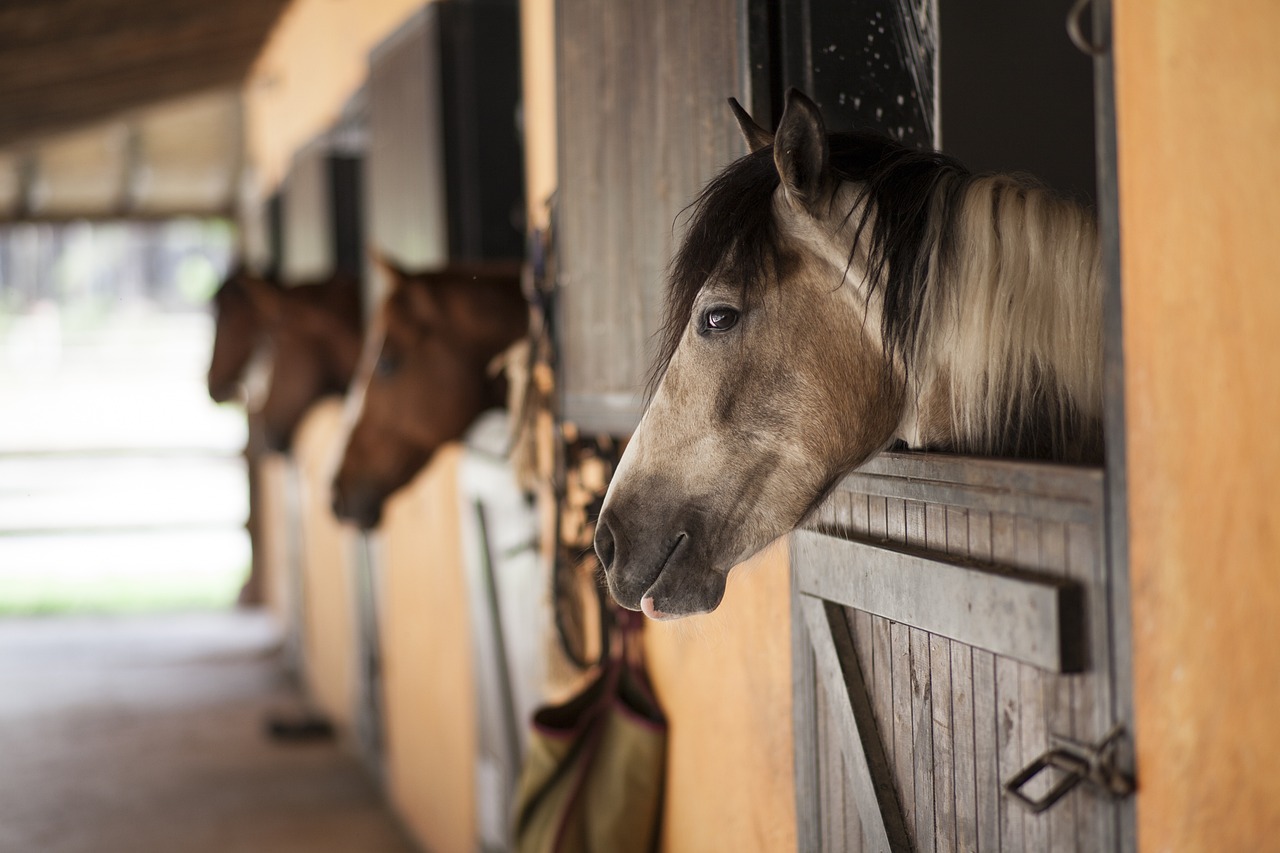
Pasture Management
Even if your horses stay in a pasture there are many ways you can control fly populations.
One way to do this is to rotate your pastures. By using rotational grazing, it prevents overgrazing and reduces the manure amount. Both of these disrupt fly breeding sites and behaviors.
You can also create a regular schedule to remove manure. Removing the manure will make your horses more comfortable and allow more grass to grow. You can even buy special attachments for a 4 wheeler that picks up all the manure piles in your field.
Make sure all your fencing is secure to wild animals can’t contribute to the fly populations. This is also a good time to make sure your fencing is in good condition and is safe for your horses
You can also consider feeding horses a special supplement with ingredients like garlic, apple cider vinegar, or yeast. This ensures your horse’s manure is treated for flies which will prevent them from laying eggs there.
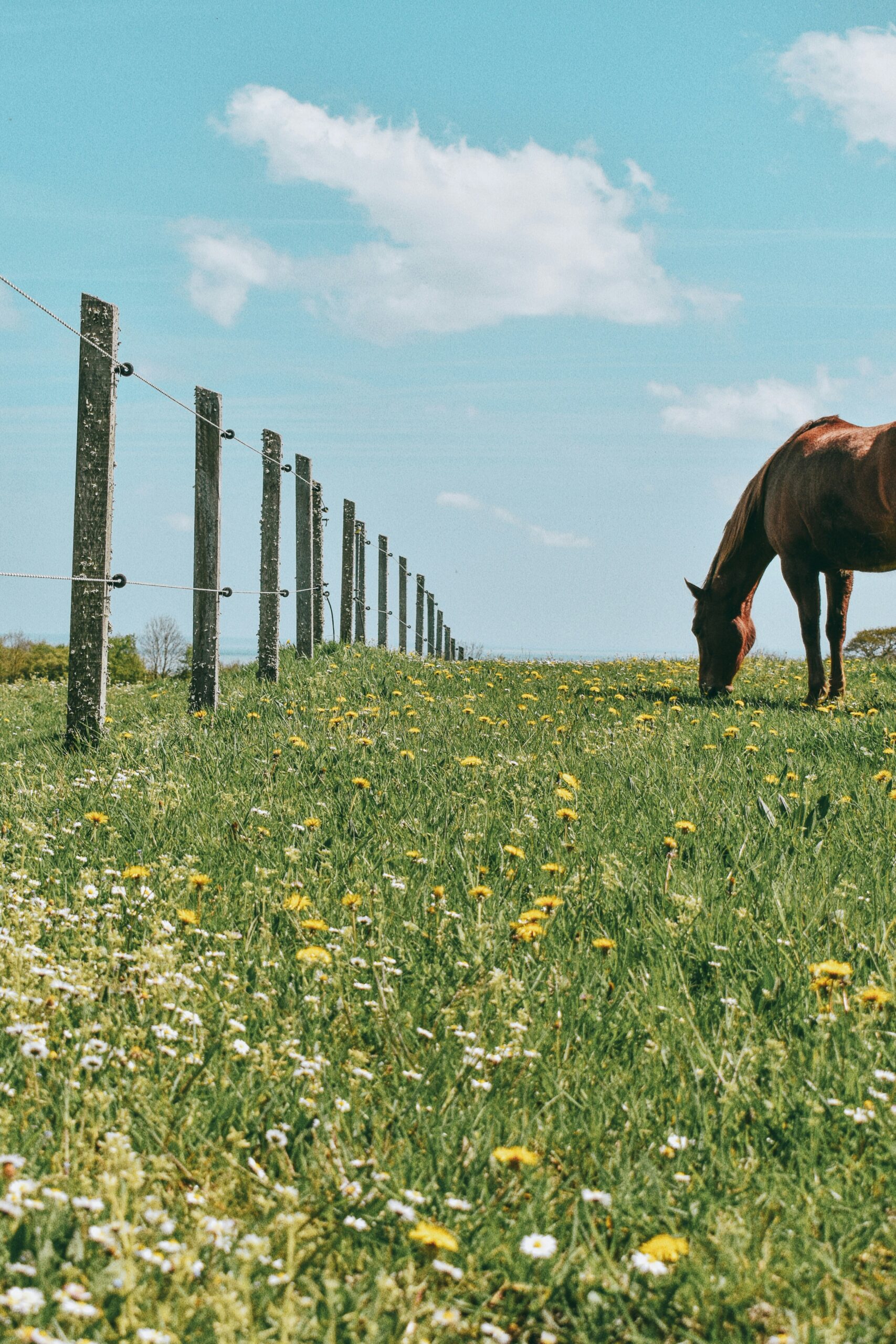
Managing flies is an important part of keeping your horse healthy and happy. Regularly assess your barn and pasture areas for potential breeding sites and implement preventive measures to keep flies at bay.
Horses that are in fly infested areas often develop health issues and are uncomfortable.
By implementing these fly management strategies, you can create an environment that is less hospitable to flies and more enjoyable for your horses to graze in.
I hope these fly management strategies help you and your horses enjoy and thrive in these warmer months!

